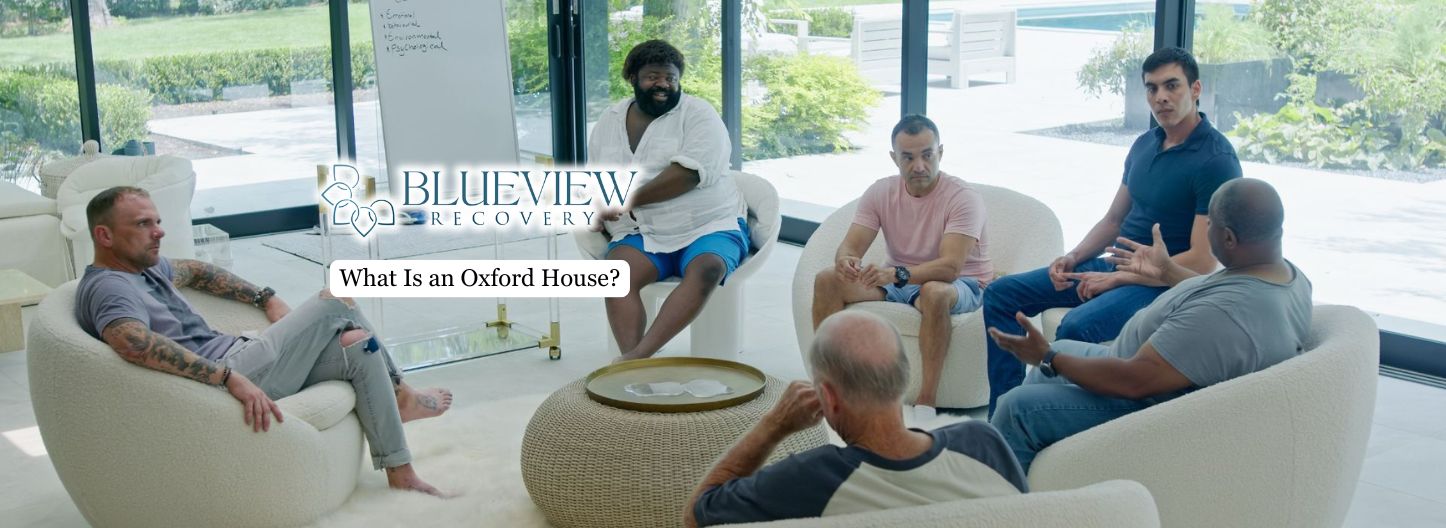In a time when individualized care is essential, Intensive Outpatient Programs (IOPs) offer a structured yet flexible approach to addiction treatment. These programs provide a distinctive combination of comprehensive care and personal autonomy, enabling participants to receive crucial support while still maintaining their day-to-day obligations.
This article will delve into the top 5 benefits of an intensive outpatient program, emphasizing how they act as a link between intensive inpatient services and conventional outpatient treatment.

Structured Routine and Support
When you participate in an IOP for addiction treatment, you’ll benefit from a structured routine that is specifically tailored to your needs and goals, which typically involves attending therapy sessions for about 3 hours a day, 4-5 days per week.
This structured routine aids in developing and maintaining healthy habits crucial for sustained recovery. You’ll engage in a combination of psychoeducation, group therapy and individual counseling, where you can share experiences and establish a valuable support network from peers who understand your struggles.
IOP emphasizes relapse prevention strategies, equipping you with practical tools to handle triggers and challenges associated with addiction recovery.
The program’s structure fosters accountability, enhancing your commitment to recovery and reducing feelings of isolation often experienced during this journey.
Development of Coping Skills
These programs also focus on teaching you practical coping skills that can be applied in real-life scenarios, which allows patients to maintain sobriety and manage substance abuse stressors.
You’ll participate in skill-building sessions covering topics like emotional regulation, mindfulness, and relapse prevention, enhancing your ability to handle triggers and cravings.
The group therapy component allows you to practice these strategies in a supportive environment, fostering peer feedback and shared experiences. Continuous practice helps you retain and refine these new coping skills, contributing to your resilience and capacity to navigate everyday challenges without resorting to substance use and outside of treatment.
Maintaining Work and Family Life
One of the most significant benefits of Intensive Outpatient Programs is their flexibility, allowing you to maintain your family, work, or school commitments while receiving rigorous addiction treatment.
IOPs provide a manageable balance between therapy and daily responsibilities by offering treatment sessions during evenings or weekends. You can attend intensive outpatient programs for about 3 hours a day, 4-5 days a week, ensuring your professional obligations and family life remain intact.
By returning home after rehab, you’ll have the opportunity to practice newly learned coping skills in real-life situations, fostering independence and managing your responsibilities while receiving professional support.
This flexibility is a key benefit of intensive outpatient programs, which typically last between 6 to 12 weeks. You can integrate treatment into your existing routine without sacrificing your roles at work or home.
Cost-Effective Treatment Option
Compared to traditional inpatient and residential programs, IOPs offer a more affordable addiction treatment option without compromising the quality of care.
As a cost-effective alternative, intensive outpatient programs allow you to pay only for the sessions you attend, reducing the overall financial burden. Many insurance plans are likely to cover part or all of the costs associated with this IOP treatment option, making it even more accessible.
IOPs’ flexible scheduling enables you to maintain employment or other daily commitments while receiving treatment, minimizing loss of income. This cost-effectiveness encourages individuals to pursue necessary treatment without the financial strain often associated with more intensive care options, making IOPs an attractive choice for those seeking help on their journey to recovery.
Read more about the cost of intensive outpatient programs here.

An IOP Provides Smooth Transition from Inpatient Care
When you’re transitioning from a more intense level of care like an inpatient program, back into daily life, intensive outpatient programs offer a structured environment that supports your ongoing recovery journey.
The flexibility of intensive outpatient programs allows you to maintain daily responsibilities, like work and family commitments, fostering a smoother reintegration process.
You’ll have continuous access to therapy, including group and individual therapy sessions which are very helpful for individuals with co-occurring mental health issues. This helps patients practice newly acquired skills in real-world scenarios, reinforcing your recovery efforts.
The ongoing support of peers and professionals in IOP programs reduces feelings of isolation and increases accountability during your transition.
This gradual adaptation to your routine, without losing the support you received during inpatient care, creates an environment conducive to healing and long-term recovery success.
Final Thoughts from Blueview Recovery
By opting for an Intensive Outpatient Program (IOP) like the one offered at Blueview Recovery, individuals struggling with addiction can access evidence-based therapies, peer support, and practical life skills training. These are all crucial components for building a solid foundation for lasting sobriety.
Our program embodies the key benefits of IOPs, offering a structured yet adaptable approach to recovery that allows clients to receive vital support while continuing to engage with their everyday lives.





